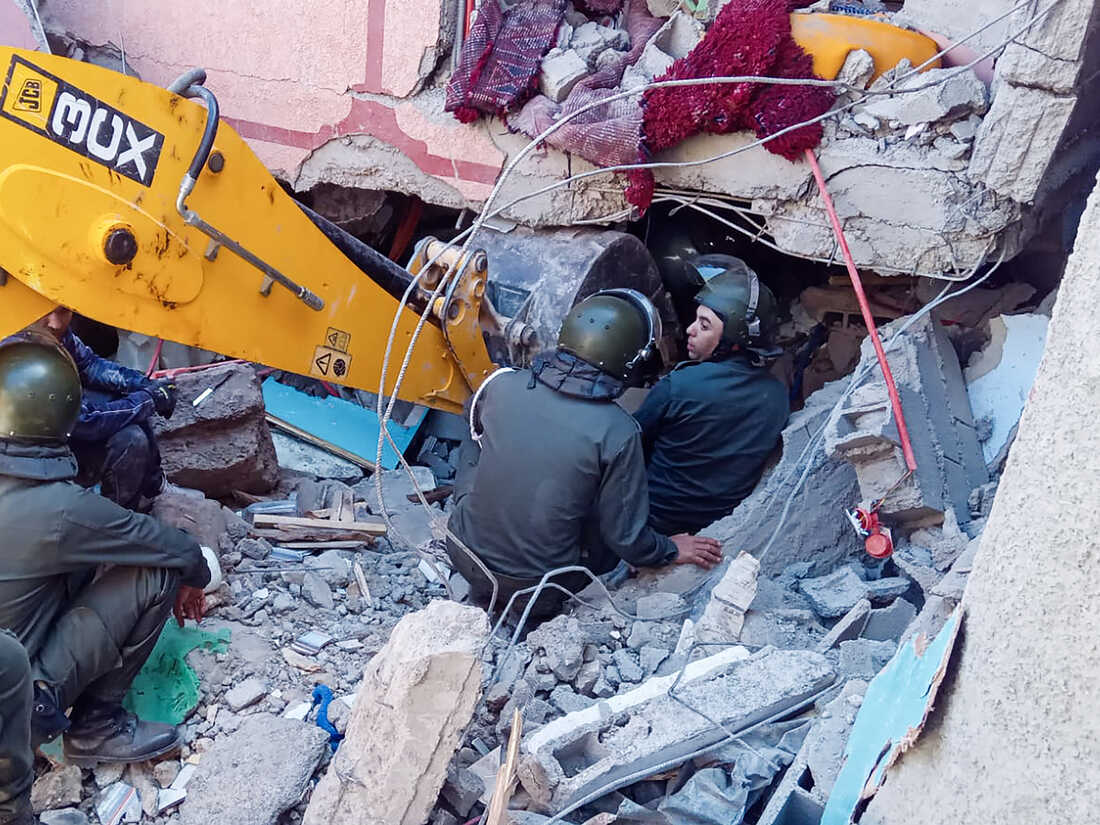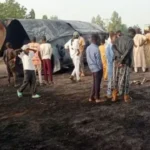Morocco’s deadliest earthquake in decades has killed more than 1,000 people, authorities said Saturday, as troops and emergency services scrambled to reach remote mountain villages where casualties are still feared trapped.
The 6.8-magnitude quake struck late Friday in a mountainous area 72 kilometres (45 miles) southwest of tourist hotspot Marrakesh, the US Geological Survey reported.
With strong tremors also felt in the coastal cities of Rabat, Casablanca and Essaouira, the quake caused widespread damage and sent terrified residents and tourists scrambling to safety in the middle of the night.
“I was nearly asleep when I heard the doors and the shutters banging,” said Ghannou Najem, a Casablanca resident in her 80s who was visiting Marrakesh when the quake hit.
“I went outside in a panic. I thought I was going to die alone.”
In the mountain village of Moulay Brahim near the quake’s epicentre, rescue teams searched for survivors in the rubble of collapsed houses while residents began digging graves for the dead on a nearby hill, AFP correspondents reported.
The army set up a field hospital in the village and deployed “significant human and logistical resources” to support the rescue operation, state news agency MAP reported.
It was the strongest-ever quake to hit the North African kingdom, and one expert described it as the region’s “biggest in more than 120 years”.
“Where destructive earthquakes are rare, buildings are simply not constructed robustly enough… so many collapse, resulting in high casualties,” said Bill McGuire, professor emeritus at Britain’s University College London.
Updated interior ministry figures on Saturday showed the quake killed at least 1,037 people, the vast majority in Al-Haouz, the epicentre, and Taroudant provinces.
Another 1,204 people were injured, including 721 in a critical condition, the ministry said.
Civil defence Colonel Hicham Choukri who is heading relief operations told state television the epicentre and strength of the earthquake have created “an exceptional emergency situation”.
Foreign leaders expressed their condolences and many offered assistance, including Israel with which Morocco normalised relations in 2020.
Neighbour and regional rival Algeria announced it was suspending a two-year-old ban on all Moroccan flights through its airspace to enable aid deliveries and medical evacuations.
US President Joe Biden said he was “deeply saddened by the loss of life and devastation”.
Chinese leader Xi Jinping expressed “deep grief for the victims” and hope that “the Moroccan government and people will be able to overcome the impact of this disaster”.
Pope Francis expressed “his profound solidarity with those who are touched in the flesh and heart by this tragedy”.
In 2004, at least 628 people were killed and 926 injured when a quake hit Al Hoceima in northeastern Morocco, and in 1960 a magnitude 6.7 quake in Agadir killed more than 12,000.
The 7.3-magnitude El Asnam earthquake in Algeria killed 2,500 people and left at least 300,000 homeless in 1980.

 Join Daily Trust WhatsApp Community For Quick Access To News and Happenings Around You.
Join Daily Trust WhatsApp Community For Quick Access To News and Happenings Around You.


